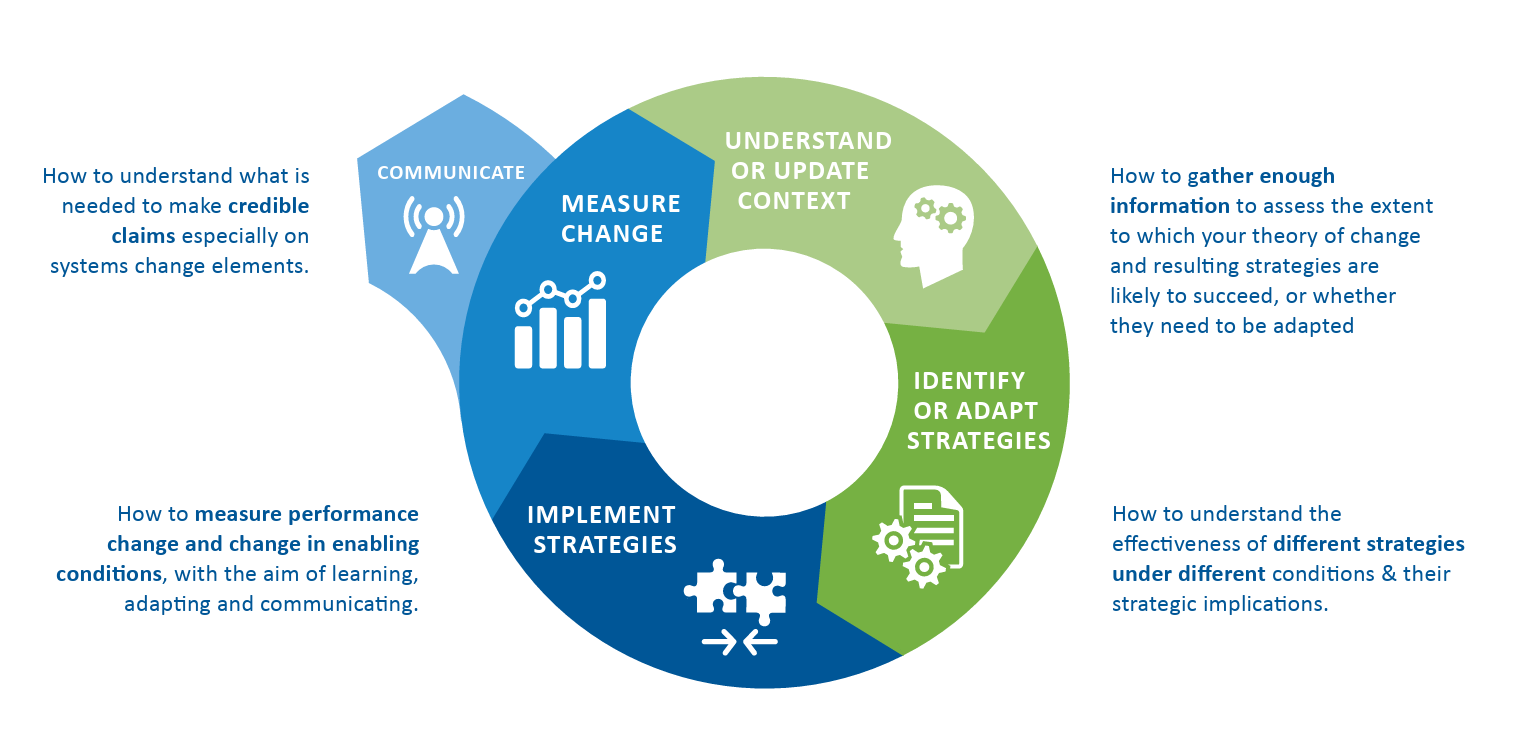Understanding the impacts of sustainability systems
Credible sustainability systems must, ultimately, drive meaningful and relevant sustainability impact. How do we know they are achieving this? Understanding the effectiveness and impacts of a system is key for accountability and transparency towards stakeholders, driving learning and innovation and making strategic choices about the most effective and impactful pathways to drive change.
This page describes how sustainability systems measure their effectiveness, ISEAL’s work in supporting monitoring and evaluation and recent reports on understanding standards’ impacts.
ISEAL’s work on understanding the impacts of sustainability systems includes a range of activities.
- We support our members to build effective monitoring and evaluation systems through guidance in the ISEAL Code of Good Practice and peer learning activities in our Community.
- We conduct and commission studies, in partnership with independent researchers, to understand the impacts of sustainability systems on specific topics and sectors.
- We founded Evidensia as a public good to provide access to credible research on the impacts and effectiveness of market-based approaches, including sustainability standards.
The ISEAL Code defines ‘impact’ as the long-term, higher-level changes resulting from the scheme and ‘outcomes’ as the short and medium-term results from a scheme. Having clarity on strategies for impact is a foundational pillar of a credible system and laid out in Section 1 of the ISEAL Code of Good Practice for Sustainability Systems.
Systems adopt a range of strategies to create change over the medium to long term. At their core, many systems use their standards’ content, compliance and assessment against the standard and capacity-building to meet the standards’ requirements as strategies to create impact. This strategy hinges on the understanding that the scheme’s standard is developed to drive change and sustainability impact at a topic or sector or industry level. Over time, this ‘pathway’ has gone beyond traditional use of certification and compliance as key interventions to also encompass setting performance-based criteria, capacity-building of schemes participants and creating direct market access for them.
A second pathway is to create change in the underlying systemic and structural issues that operate within a sector, supply chain or region and improve the enabling conditions that can advance sustainability. This ‘systemic pathway’ involves activities such as working on policy and advocacy through government engagement, driving stakeholder consensus on sustainability at a sector or industry level or driving change at scale through adopting landscape and jurisdictional approaches.

A good and credible sustainability should publicly talk about what strategies it adopts to drive sustainability change and how it goes about measuring and evaluating the change it contributes to. Users of such systems should understand these strategies so they can have clarity on what change the scheme aims to drive and where additional tools or partnerships may be needed to meet their sustainability goals or regulatory requirements.
An understanding of strategies to drive intended impact must be accompanied by setting up systems to monitor, measure performance and evaluate the change the scheme is driving. As part of our work on driving system effectiveness, ISEAL works with our members to build competency, capacity and drive peer learning on monitoring, evaluation, learning and measurement.
One of the ten ISEAL Credibility Principles is around value creation. A credible sustainability system strives to create value that fairly rewards the effort and resources that it takes for users to participate in the system. It has a viable business model, and it operates efficiently, minimising costs for users and reaching more users by reducing other barriers to access. It supports users to implement its tools, and it empowers users by demonstrating a clear business case for participating in its system.
How do sustainability systems create value and benefits for users? Research shows that sustainability standards brings benefits for businesses beyond the social and environmental outcomes that their systems are designed to address. These benefits reach large and small businesses, at every stage of the value chain, and include both immediate and long-term benefits. Short-term or early benefits include benefits in operations, procurement and sales and marketing departments of businesses as well as stakeholder engagement and creating sector-wide consensus. Long-term benefits include building business resilience, growth in productivity, legal compliance and reputational gains.
Research shows that sustainability systems such as certification standards can drive up farmer income and yield from certified costs. Schemes are also innovating to support upstream and downstream partners with supply chain due diligence efforts.
All stakeholders want evidence of the impacts of sustainability systems on issues that matter – whether that be tackling deforestation, supporting farmer livelihoods or addressing forced labour in supply chains. Publishing regular performance monitoring data against key metrics and is one important way schemes themselves can help with this. But such data is usually a snapshot in time and answers questions around what the schemes does, who uses it and immediate short-term changes from adopting their standards and complying with these requirements. Understanding how such tools drive long-term impact requires different research techniques. Evaluating the impact of market-based tools on complex issues involves a commitment to independent, empirical research that can apply robust research designs and scientific methods to understanding cause and effect; attribution and contribution. This is usually best done by working with evaluation experts and through independent research at field-level.
ISEAL supports independent research on the impacts of sustainability standards, certification and similar market instruments by academics, researchers and students. We help researchers understand what sustainability systems are, how they are unique and why this matters for impact evaluation. We partner with independent researchers through commissioned studies on specific issues and regions. We participate in research workshops and conferences to share insights on impacts from our practitioner knowledge, member experiences and research from Evidensia. We facilitate researcher-practitioner dialogue through Evidensia and its public webinars, blogs and learning activities. Contact us via the Evidensia platform (evidensia@isealalliance.org) for queries and collaborations on research.
Evidensia is a research platform and programme that compiles and analyses information on the impacts of market-based sustainability approaches. Launched in 2019, it is the largest online repository of curated evidence on the impacts of market-based sustainability approaches and trusted by researchers and practitioners alike.
Evidensia’s resource library catalogues more than 1500 evidence resources by market approach, issue, sector and product, country and type of evidence. It hosts a growing collection of articles authored by leading researchers in this field. It brings research to life through visualisation features such as the Geographic Map, Knowledge Matrix and the unique Visual Summaries.
Evidensia also undertakes research on key issues of interest that study how market-based tools create impact and evidence of such evidence over time. Its systematic reviews are flagship reports that provide the state of knowledge on impacts of market-based approaches on livelihoods, decent work, agrochemical use and conservation and offer learning to drive practice.
Search the Evidensia library to find evidence on issues relevant to you.
Read more about Evidensia's approach and methodology.
ISEAL was one of the founding partners of Evidensia and powers the platform and work. Evidensia is independently governed through and Advisory Council comprising academia and research, business, and policymakers.
Have research to share? Interested in collaborating? Reach out to the Evidensia team at evidensia@isealalliance.org.






